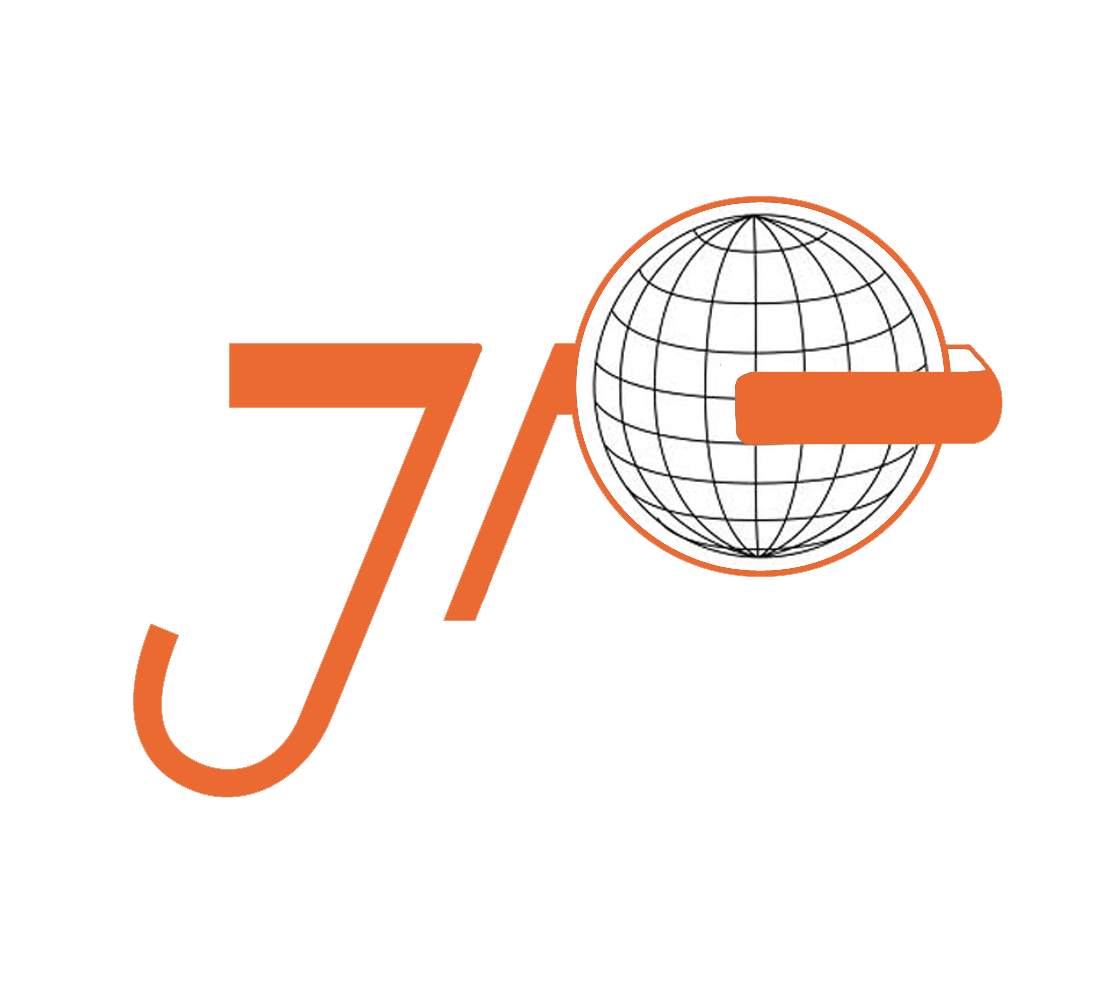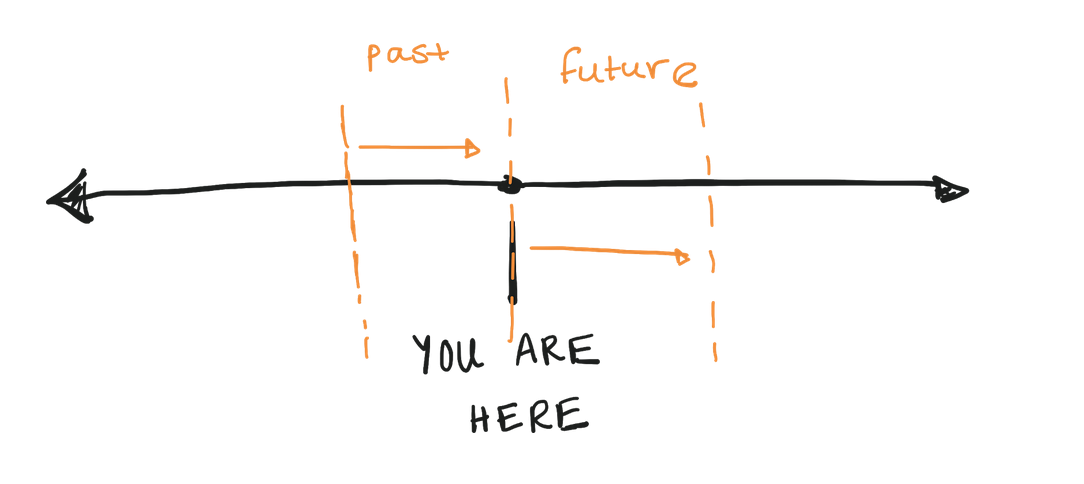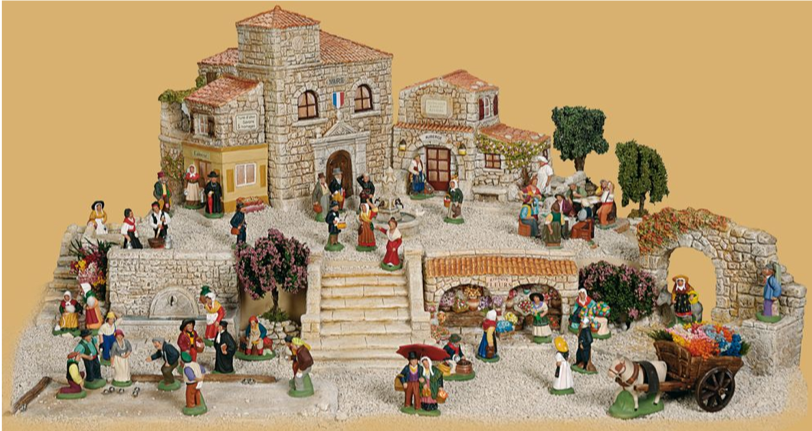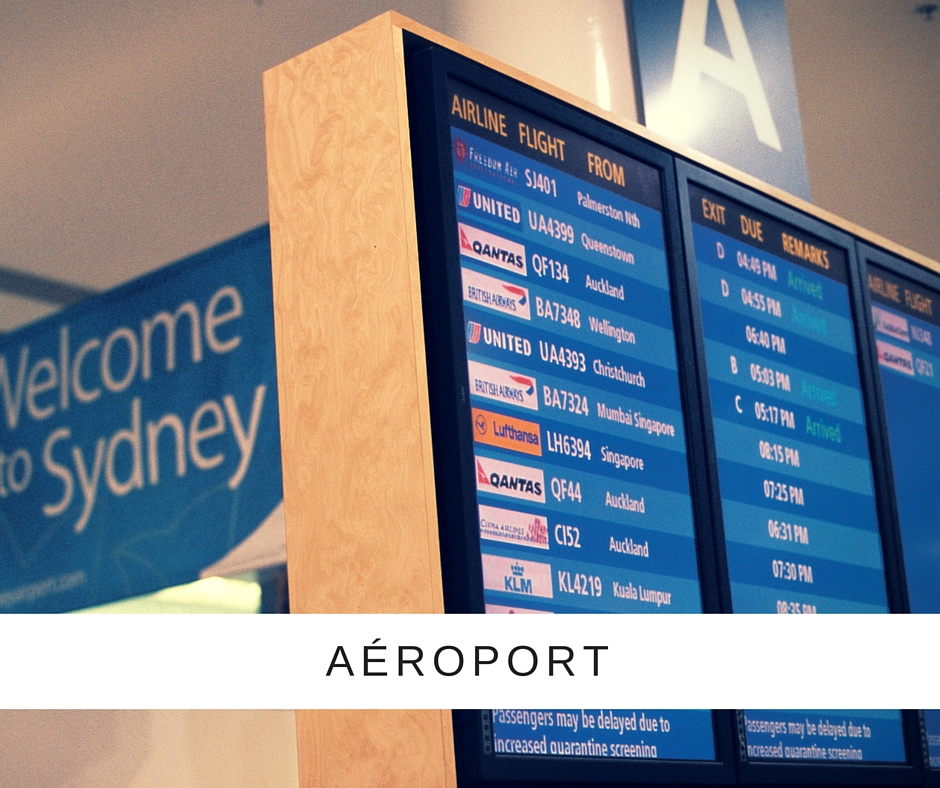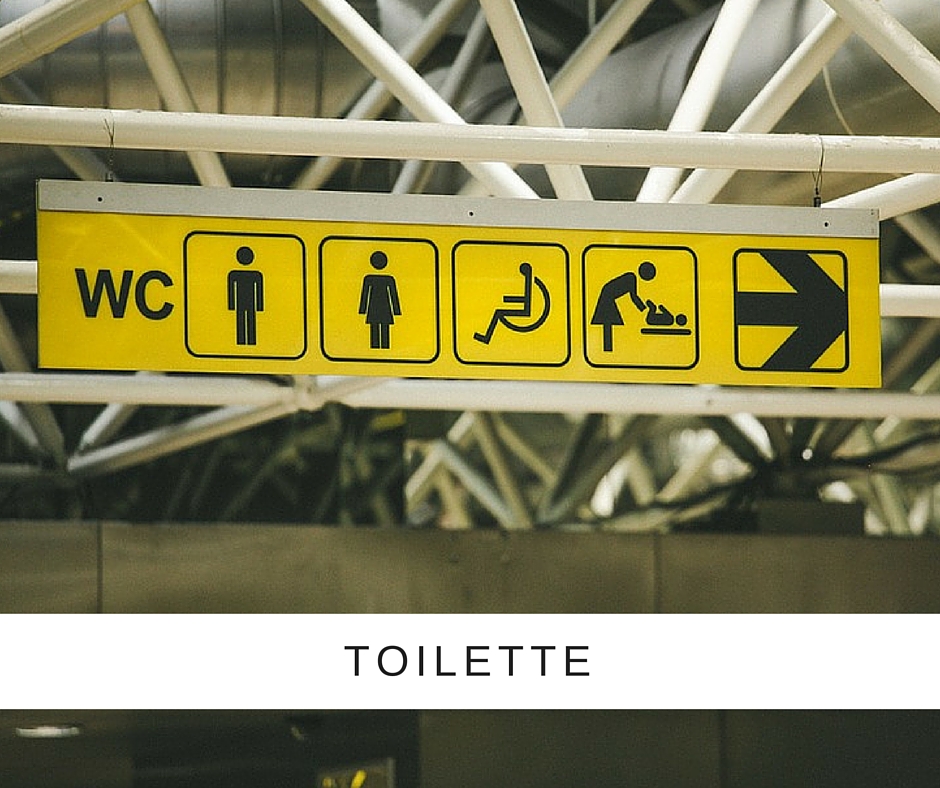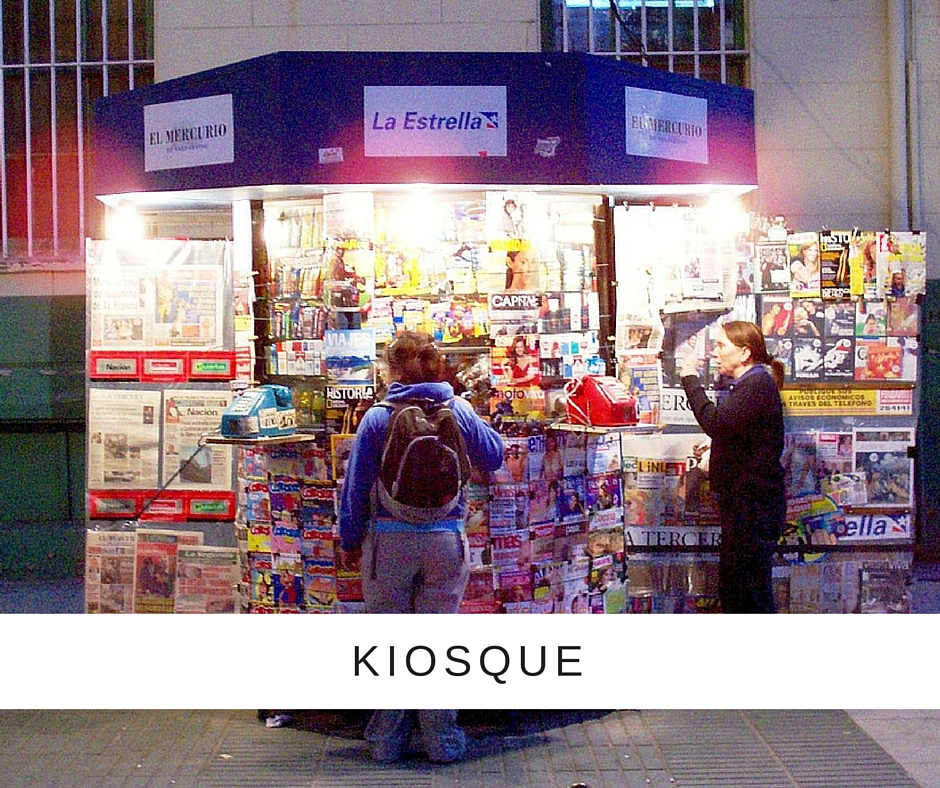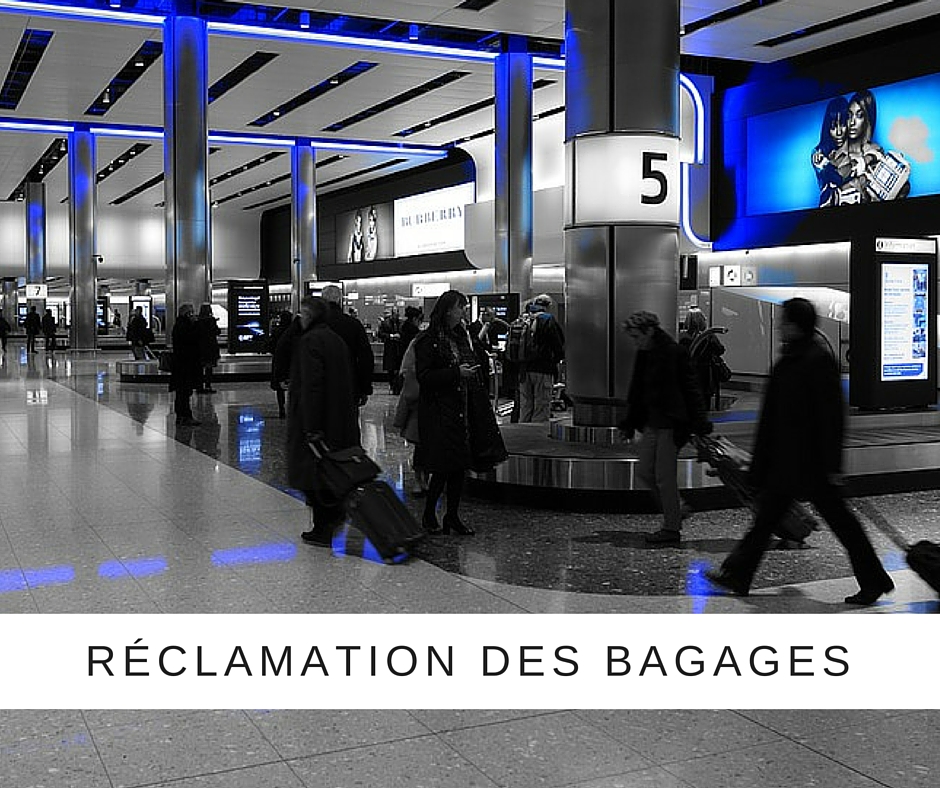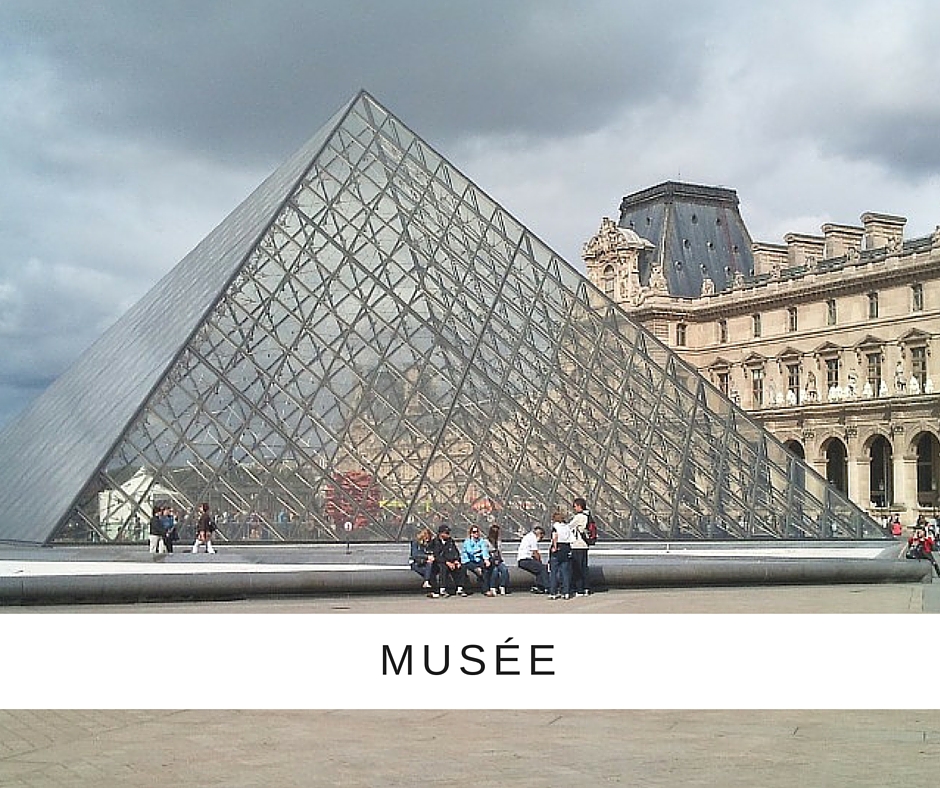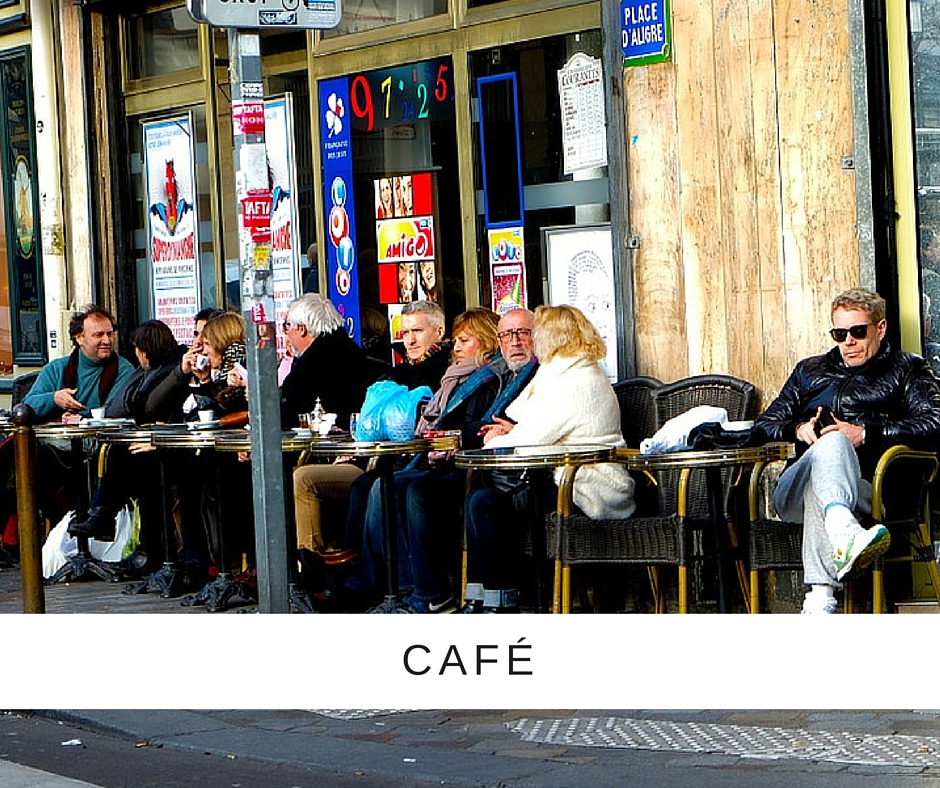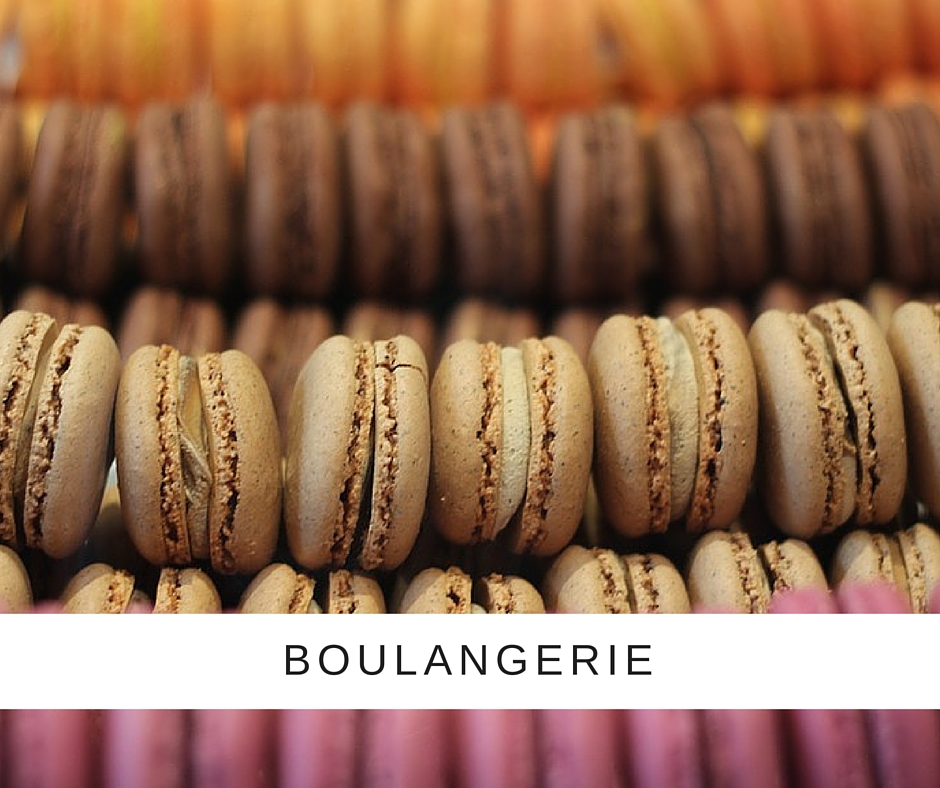
Le Carrefour: Connecting French-Speaking Populations in Vacationland
Jessamine Irwin chats with us about Francophone immigrant experiences in Maine.
Jessamine Irwin, French professor and director of Le Carrefour
by Brian Alcamo
“Nobody knows about French in Maine, and nobody knows about all of the newcomers that have been arriving in the past few years,” Jessamine Irwin tells me over a Friday morning Zoom call. “It’s a lot of new information in thirty-two minutes.”
I recently sat down with French professor-turned-documentarian Jessamine Irwin to learn more about her first film, Le Carrefour (The Intersection). Why is it called the Intersection? The film explores “the intersection of francophone immigrant experiences in Maine.” The immigrant experiences which Ms. Irwin is referring to are those of white, older French speaking Mainers and those younger black French speaking population that has been steadily arriving since the mid 2010s. The film’s goal, she says, is to “serve as a catalyst to create a space for conversation surrounding immigration.” Some of these conversations, she hopes, will happen in French classrooms.
Jessamine, first and foremost, is a French educator. She cares about the plus-que-parfait, proper pronunciation of the French “R,” and pain au chocolat. While university French departments and other institutions that offer French classes consistently advertise French as a global language with over 250 million speakers, (making it the fifth most spoken language in the world!) courses typically only offer linguistic and cultural insights into one country: France.
Maine may not be the first place on the list of “French-speaking places that aren’t France” (you may be more inclined to think of Louisiana for that), but the East-Coast’s northernmost state has historically been a stronghold of the French language in the USA. Le Carrefour not only gives us insight into the present day immigrant experience in Maine, but also takes us through the history of immigration in French, answering many people’s (including protagonist Trésor’s) big question: why is there French in Maine to begin with?
Tresor, one of the film’s main subjects.
Cécile, another main focus of the film.
The journey of French into Maine began with the migration of Acadians into the state during Le Grand Derangement. This period of time, known as “The Great Upheaval,” in the mid 1700s, was an ethnic cleansing attempt imposed by the British after they took control of New France (present day Canada). Acadians lived off the land and worked with the woods, producing commodities like maple syrup and snowshoes. To this day, many of them are very tied to the forest. Acadian settlements in Maine are positioned extremely close to the Canadian/American border. Some of their relatives moved down south to Louisiana, particularly New Orleans. Their southern eponym slowly underwent a linguistic metamorphosis to become a word (and cuisine) we all know and love today, Cajun.
Back up north, though, a wide-reaching underground French speaking population has been living there since the dawn of the United States, and Jessamine Irwin wants you to know about it. Le Carrefour stars Tresor and Cecile. Tresor came to the USA from the Democratic Republic of Congo, with a pitstop in Brazil. He speaks French, Portuguese, Lingala, Tshiluba, and some English. He is well educated, having studied pedagogy in his home country and Performing Arts in Brazil. Beyond his official education, though, Tresor is also filled with more worldly knowledge than most people. Before coming to the US, he lived in Brazil. He says that moving to another country is “like being born again.” Logistically speaking, this unfortunately meant that Tresor’s degrees and work experience abroad aren’t recognized in the USA. Despite being highly educated, he works night shifts in a warehouse in Maine. Hardship like this, including having to learn new languages, adapt to a new environment and bureaucracy, and deal with the trauma that comes with displacement, is a common thread among immigrants and history, Jessamine says, repeats itself.
This repetition, she says, is playing out right now in Maine, tucked away in the far northeast corner of the country. Cécile, the film’s other protagonist, is aware of this past immigrant experience. She is part of Maine’s large Franco-American community, and there was a lot of shame in Cecile's generation for identifying as such. “Many people might understand Franco-American as an American who speaks French,” Jessamine specifies, “but in New England the term takes on a more specific definition.” Not to be confused with Acadians who moved to Maine before the mills, Franco-Americans are of French Canadian descent, either an immigrant themselves or a descendant of an immigrant who moved to Maine from Canada to work in the mills during the Industrial Revolution between the 1850s and the 1930s. Cécile and others faced intense shaming from the English-speaking public, and were discouraged from speaking their language and from worshipping Catholically. Franco-Americans were even targeted by one of the largest KKK chapters in the US. “If we avoid trying to make people feel like they’re ‘Not American Enough’ we can all benefit from the diversity, more easily learn from each other, give people a voice, give power to people, and break the generational cycle of assimilation trauma.”
A bridge in the middle of Lewiston, ME
Mainers are very aware of people who did not grow up in Maine. They even have a phrase for it: “coming from away.” “To me,” Jessamine explains, “‘Coming from away’ is a very nonmalicious way that Mainers describe outsiders. People care about the lived experiences of others. “Maine,” she continues, “is not ethnically diverse. It’s very white, with those white people typically having Irish and/or French Canadian heritage.” There’s certainly lots of racism to deal with in the state. This racism follows economic lines and gets more rampant up north, away from Portland, Maine’s largest city (of 67,000 people). “People want to find someone to blame for their own hardship.”
Some people in Maine are welcoming the newcomers with open arms. In 2019 with the first big wave of asylum seekers, the former mayor of Portland, turned the Expo Center into makeshift housing, welcoming the asylum seekers and making them feel like they belonged, helping them to not feel othered. “It’s dangerous to not make people feel welcome,” Jessamine says. “There’s been displacement forever, and most Americans are lucky to have not experienced it.” Maine has an aging population. Like the countries where the immigrants are coming from, the state is undergoing its own Brain Drain. However, Jessamine says, “it’s practically being gifted these super capable young people, and even has some of the linguistic infrastructure required to welcome these newcomers.” Jessamine and Tresor want people to understand that educated people are coming. Trésor believes that all these immigrants want to do is pursue their passions and move forward with the people of Maine. In the 1970s, there were 147,000 French speakers living in the state, and that number has dwindled since. Newcomers are not only breathing new life into Maine’s economy, but its French-speaking population as well. But not even all Mainers know about their own state’s Francophone backbone.
The Gendron Franco Center, a historic stronghold of Francophone culture in Maine
Jessamine, luckily, grew up aware of all of the French being spoken betwixt and between Maine’s maple trees. Jessamine’s mother grew up in Madawaska, a town right on the border of Canada’s French-speaking province of New Brunswick. Her mom grew up hearing French on the playground everyday at school, and this exposure led to her pursuit of French, which she studied at the University of Maine in Orono and turned into a career while working at the school’s Franco-American Center. Perhaps interest in the French language is passed down matrilineally, because Jessamine followed in her mother’s footsteps, beginning her formal French studies in high school.
Unfortunately, the filmmaker didn’t get to formally learn about the French speakers in her home state that she knew existed during those early years of apprentissage. “In my French classes before the university level, I never came into contact with Franco-American representations.” With the exception of one Canadian teacher who provided some insight into Canadian French and cultural traditions, most of her school books were Euro-centric.
Jessamine finally began to learn about the French language in her neck of the (literal) woods when she began studying at the University of Maine, her mom’s alma mater. Learning French, or any foreign language for that matter, tends to unlock opportunities, and Jessamine was able to study abroad in France during her time in college. “When I went to Paris for the first time, it was like my eyes opened,” she says. “People had no clue what Maine was, and made fun of North American French. At first, I kind of embraced it.” Due to societal pressures, Mrs. Irwin was embracing was the homogenous view that many French students and educators have of the French language and culture. Through her film, she wants to challenge those ideas and provide a resource to help bring the diversity of the French speaking world into the classroom.
Vocabulary For Your Next Discussion About Immigration En Français
Les frontières - Borders
L’identité culturelle - Cultural identity
Locuteur natif - Native speaker
La barrière de la langue - Language barrier
Une dictature - A dictatorship
Lewiston, the center of Maine’s Franco American population, is what many Mainers would describe as a “die hard mill-town,” a working class town filled with Franco Americans. It was founded at the beginning of the industrial revolution, and many immigrants from Quebec fondly remember taking the train down to the Grand Trunk Railroad station. The town features remnants of “Little Canada,” which used to be tenement housing built in rapid succession for the mill workers who were moving in droves. “The main street is easily identifiable, with the Continental Mill coming, then Little Canada, and then the Franco Center,” Jessamine says. In a course that she created at NYU, Jessamine creates that experience for her students on a week-long trip to the french-speaking parts of Maine. But in a less curated setting during her summer of shooting footage in Maine, Jessamine could still speak French every day.
Shooting with a bilingual team provided a few language-barrier challenges. Cecile is fully bilingual, Tresor is still working on his English. Jessamine’s co-director, Daniel Quintanilla could understand French, which helped for some on-set shooting snafus, since most of the film is in French and only two team members could decide whether enough footage was shot. Where her teammate’s knowledge of French was even more crucial, Jessamine said, was during the editing process. It turns out that screens and keyboards provide none of the social cues or body language to supplement spoken word.
If you’re wondering whether you can strike up a conversation in French with someone, the short answer is “yes.” Walking around Lewiston on a busy day (when it’s not freezing cold out), you can hear French in parks, spoken between friends and families old and young. You’re not considered a nuisance for trying to speak French, either. It’s a very “Maine” thing to acknowledge a passerby on the street. To wrap up our discussion, Jessamine recounted the story of when Cecile was asked “How can we be more welcoming to immigrants?” at a recent screening Q and A. Smiling, Jessamine recalled that Cecile advised people to simply “look people in the eyes and say ‘bonjour.’”
Thanks For Reading!
Interested in watching Le Carrefour? Head to their website and sign up for their newsletter to hear more about future opportunities to view the film.
L'Académie Française: Making Sure Learning French Is Never Too Easy
The birthplace of your favorite rules and regulations!
by Brian Alcamo
France is governed by the French government, but French is governed by L’Academie Française (in French, it is spelled L’Academie francaise, the French don’t seem to be big fans of titles with too many capital letters). This centuries-old body is the reason why French learners (and native speakers, too) spend countless hours trying to remember painstaking rules such as having to make a past participle agree in gender and number with a direct object if said direct object is placed before the verb. For example:
Est-ce que tu as acheté le livre ? Oui, je l’ai acheté.
Est-ce que tu as acheté les fleurs ? Oui, je les ai achetées.
This particular rule is something that not even some computer spell check systems can get right. To be fair, this is pretty cool. You can make a computer learn to do plenty of things, but it will never score a 20/20 on its comprehension écrite. That being said, it goes to show just how many French writing rules are no longer supported by the modern day spoken language. The two verbs, ai acheté and ai achetees, are pronounced the exact same way.
But what’s this Académie’s whole deal anyway, and why does it seem to have a proverbial stick up its proverbial you-know-what?
How the Académie Française Came to Be
The year is 1635. The king is Louis XIII. Cardinal (de) Richelieu continues to exercise his control over the young king, and gets himself named “le chef et le protecteur,” or “Chief and Protector” of the newly created Acadmie Française. This novel language-governing body may be today’s most notorious, but it was not the first. Richelieu was inspired by Florence’s Accademia della Crusca, an Italian organization
The flowery language of the organization’s mission statement declares that the Academie’s function is to create certain rules for the French language that will render it “pure,” “eloquent,” and “capable of engaging with the arts and sciences.” The mission statement also likens a nation’s arts and sciences to its arms. This link between language and military prowess is a reminder that at the end of the day, l’Academie is still a government body looking to exercise power.
Given that the Académie Française was constructed during the monarchical phase of France’s history, you might be wondering about what happened to it during the Revolution. From 1795 to 1816, the Academie Française ceased to exist. Along with other royal academies, it was abolished by the National Convention before being reinstated by some guy named Napoleon Bonaparte. Since the dawn of the French Republic, the original role of “Le chef et le protecteur” is fulfilled by the sitting French President.
Who’s Who and What’s What
The Académie is made up of forty nerds members, know as Les Immortels. Some of these members have been literary powerhouses: Voltaire, Victor Hugo, Eugene Ionesco among them. To become a member, you have to apply to fill a vacant position, rather than applying to be a member in general. If someone is fit for the role, they are voted in by the current immortels. At meetings, members have to wear l’habit vert, a special green outfit. Funnily enough, the color green was chosen out of process of elimination, according to Henri Lavedan.
Over time, the organization has changed its mission to be a more holistic one, with the goal of creating a language and writing system that is to be used by everyone, not just arts and sciences hotshots. France’s national love for its languages means that L’Académie Française remains a culturally relevant part of the government. Whole swaths of people react viscerally whenever the Académie changes something, and it's not only French teachers who are startled.
Back in 2016, the Académie made it acceptable to leave the accent circonflexe (the carrot) off of certain words. They also recently changed the spelling of the word “onion” (from oignon to ognon) for some quirky reason. After some people expressed concerns about the changes, the academie has ensured that both old and new spellings will be considered “correct.”
More controversially, the Académie has also contested the feminization of French nouns. It insists that regardless of a person’s gender, they must always use the masculine form of a noun if there is no feminine form readily available. Le ministre will always be le ministre, never la ministre, regardless of the gender of the ministre.
Now, don’t get us wrong. Languages do need some sort of decided-upon rules for governing spelling and grammar (mostly spelling). But problems arise when these rules are decided by an elite group of educated people. It can create issues of class equality, with spelling rules easily becoming arcane because of natural changes in pronunciation. When spelling and grammar no longer reflect spoken language, and instead represent literary achievement, who do these rules really serve?
Thanks for Reading!
Thanks for reading this blog post. Next time you get upset about a mispelled word that still “looks right,” or are thrilled by a beautifully written French novel, you can thank the Académie Française. Be sure to give this post a “heart,” and to share it with a friend!
Hauts-De-France: Where Dutch and French Collide
Things get a little Flemish north of Paris.
You may be thinking that Dutch and French happily coexist in one country and one country only: Belgium. Unfortunately for map-makers everywhere, nothing about language is that simple.
France is a country that shares borders with eleven other countries. Naturally, these borders have shifted over the course of centuries due to both the whims of the nation’s ruling class and international politics. Years after international borders have mostly hardened, these two languages continue to intermingle and influence each other in the far north of France. They do so many miles (or kilometers) away from the birthplace of the Latin language that gave rise to the French that we know, love, and study.
The map of present day France does not do that great of a job reflecting the linguistic diversity of the country. We are left with a rough hexagonal shape, L'Hexagone (not to mention the les DOM-TOM) in which accents, dialects, and languages span a country that is roughly the size of Texas. In order to create a stronger sense of nationalism and make governing easier, French rulers have taken on a policy of strong standardization when it comes to the nation’s language. This blog post over at talkinfrench.com notes that French (Parisian) replaced Latin to become the standard language of law and administration back in 1549, but it wasn’t until the 1880s when the French government began to impose French in educational settings.
Hauts-de-France
The Hauts-De-France region of France is at the tippy top of the aforementioned hexagon. Created in 2015, it’s a combination of the Nord-Pas-de-Calais and Picardy. Two of its biggest attractions are the capital metropolis of Lille, a reborn vestige of a once-thriving French rust belt, and the port city of Calais, which welcomes ships coming from all over the world and is known for its proximity to England.
Lille resides roughly 125 miles away from Paris, the city that has centralized and standardized the French language over the past few centuries. The city is also just a few miles from the Belgian border, a country whose official trilingual status— Dutch, French, and German are all official languages there- makes it an outlier among many monolingual European countries.
Languages Up North
The Hauts-de-France region hadn’t always been so monolingual, and up until recently was home to a thriving landscape of Standard French, Picard, and Flemish (or Western Dutch). Its regional accents are so iconic that there’s a movie dedicated to satirizing them, Bienvenue Chez Les Ch’ti’s. Ch’ti is a more common name for Picard, the language of the north. Picard is a Romance Language, and is spoken in Picardy and in parts of Belgium. Native-level speech is typically only found in for older populations. Picard has no official status in France, but it was granted recognition as a regional language in Belgium by its Wallonia-Brussels Federation. If you want to check out some written Picard, there is a copy of the Universal Declaration of Human Rights translated by the UN. Picard’s spelling was never standardized, but many people looking to record and study the language have gravitated towards the Feller-Carton orthography.
Lille has such a Flemish history that it even has a name in the language, Risjel. It resides in a region that was historically called French Flanders. Flemish, a variant of Dutch (a Germanic Language), was spoken in French Flanders up until 50 years ago by some accounts. Unfortunately, Flemish isn’t as popular as Picard among academics, so its legacy is not being as actively preserved by scholars. Unlike Picard, there is no standardized system of writing. Years ago, though, there used to be a yearbook called De Franse Nederlanden/Les Pays-Bas Français that was marketed towards the country’s Flemish-speaking population. It documented life in French Flanders, but is sadly no longer in print circulation. Both Picard and Flemish are predicted to be extinct by the end of the 21st century.
A map from the 1994 issue of De Franse Nederlanden
What the Future Holds
Hope for preserving Flemish culture remains! A newer website called Les Plats Pays is the successor to the print-editions of De Franse Nederlanden, and its team is working hard to keep Flemish life alive in the Hauts-de-France region. Some people even believe that knowledge of Dutch will help keep Flemish alive in academic and scholarly settings. Regardless, brushing up on your Nederlands will help you to fully appreciate the local life and culture on your next trip to Northern France!
Thanks for Reading!
Planning a trip to Flanders anytime soon? Brush up on both your French and your Dutch! Be sure to share this article with your friends, and give it a heart.
(Thumbnail photo by Dimitri Houtteman)
"C'est quoi, Dunkin'?" The French Language in New England
In New England, there’s more to French than just the fries.
by Brian Alcamo
When you think of New England, a few things may come to mind: fall foliage, seafood, and Dunkin’ Donuts. You might even think of (Old) England, with its linguistic, architectural, and cultural influences displayed all over the northern tips of the Eastern seaboard.
What you might not think of, though, is France. It turns out that the French language has a long-rooted history in the region (which, to be fair, also exists in England proper). French was originally part of New England way back in 1604, when the New France colony of Acadia (Acadie, en français) stretched into parts of present day Maine. It turns out that French culture in the United States isn’t limited to Louisiana.
The First Wave of Francophones
Almost a million French Canadians came to New England from the mid 19th to mid 20th century to work in the region’s many mills. The New England Historical society states that “Between 1840 and 1930, about 900,000 residents of Quebec moved to the United States. One-third of Quebec moved to New England to neighborhoods called Little Canadas.”
Historically speaking, French was discouraged by local English speakers, and tensions grew along both religious and linguistic lines. New England was historically home to a strong Puritan tradition, and the region’s staunchest Protestants were typically quick to defend the culture. Francophones often declared “Lose your language, lose your faith,” (“Qui perd sa langue, perd sa foi”) and French was upheld in many of the region’s Catholic churches. However, despite religious ties with the region’s Irish, the two groups did not get along.
Years after the industrial revolution’s end, a dip in Francophone activity occurred as many communities left New England and were conscripted to fight in World War II. WWII and its aftermath contributed to a new speed of assimilation of New England francophones. Many families left New England for both the war effort and for new career prospects as industry moved South and West (source). Despite these demographic changes, a francophone identity remained in Maine and other parts of New England. The culture stayed strong enough to even be part of the childhood of Maine’s previous governor, Paul LePage, who grew up speaking French.
A New Wave of Immigration
In recent years, cultural regeneration programs have begun to elevate French and Quebecois culture in New England, especially in Maine. Serendipitously, these programs have aided in the integration of new immigrants hailing from Africa.
These immigrants are typically asylum seekers from Angola and Congo. The state of Maine has been welcoming migrants with open arms, and is certain that the influx of new young adults and children will be a boon for the state’s economy in the long run. Though the rapid population increase has proved to be a challenge, many state officials are excited by the new diversity in the historically very-white state. Besides hundreds of new workers, the integration of these new francophones has led to a hopeful consequence: older Francophones now have a reason to use their language in a public setting.
These older white speakers who immigrated from Canada and younger black speakers who are now immigrating from Francophone African countries are using French to close generational and racial divides. Jessamine Irwin, a French teacher at JP Linguistics and Mainer says that she has “definitely found that French has been key in building bridges between the aging French speakers of Maine and the newly arrived French speaking African community.” While the intricacies of the dialect may change over time, the fact that French has remained and will remain in the region for a long time is a rarity, Jessamine says.
Planning a Trip
With New Hampshire, Vermont, and Maine all being neighbors with Quebec, Canada’s semi-autonomous Francophone province, you can bet that frequent trade and travel occur between the two regions, whose histories have been and remain intertwined since European settlers arrived in North America. French can be heard all the time, especially during New England’s busy summer tourist season.
The tourist industry is even beginning to capitalize on the renewed interest in French-speaking culture, with a new initiative called the Franco Route starting up in 2019. The Lewiston Sun Journal reports that it is part of a new form of tourism called “heritage tourism.” The route runs south from the Twin Cities region of Lewiston-Auburn to Woonsocket, Rhode Island. Catherine Picard of Museum L-A has put together a two hour tour of the northernmost cities on the route, including sights of old mills and Franco-inspired architecture.
The official Franco Route website says that tourists will “discover the motivations, struggles, dreams and achievements of these newcomers” along with visiting “the museums, churches and genealogy centers that preserve this history, as well as the theaters, restaurants and microbreweries that creatively express that heritage today.” The route is a way to connect with the multicultural past and present of the United States, and is proof that people don’t need to leave the country to experience a certain je ne sais quoi.
Like This Post?
Make sure to share, and comment below what you think about practicing your French up North!
(Thumbnail photo by Mercedes Mehling)
French Tenses: The Recent Past and the Near Future
How to talk about what you just did, and what you’re about to do in French.
by Brian Alcamo
Here’s a situation:
You’ve just finished your first semester (or two) of French, and you’re looking to practice with a native speaker. Since no one can meet in person right now, you schedule a Zoom session. You’ve got your passe compose, imparfait, and futur simple memorized to a T, and things are going well (aka you said “bonjour” with a passable r). Suddenly, you hear a phrase je viens de sortir, which translates literally to “I come from to go out.”
“You viens de what?”
Or, in a different conversation, they say “je vais sortir,” which literally translates to the (more intuitive) “I am going to go out.” But maybe you’re still confused. Even though you’re not allowed to gather in public, you worry that sortir could be an amazing club that you’re missing out on.
“Where is sortir? Can I take the subway there?”
In the first conversation, it turns out that your friend is coming from nowhere, but they just went out. In the second, they are going out soon. Not only are you hurt because you weren’t invited, but you and your lost brain are now way behind in the conversation.
What tense did they just use?
Those two tenses are called the passé récent (recent past) and the futur proche (near future), and they’re both extremely useful in day to day conversation.
Luckily, even if you’re not physically coming from or going anywhere during times of corona, you can still practice conjugating the verbs venir and aller. That’s because French (and other languages, including English) uses the same verbs for movement through space as they do for movement through time.
A Refresher on Time
Before we talk about grammar, let’s try to get a grasp on time. No one can get a grasp on time, but let’s try. Pictured below is the present moment:
The recent past and near future (right before, and right after, you have a conversation) are pictured here.
The areas marked off in orange are where we’ll be spending most of our time for this discussion. The orange arrows are to show the forward motion that is inherent in the passé récent and the futur proche. Don’t fret that there are no easy to use verbal constructions for talking about movement back in time. We doubt you’ll need to talk about the process of unbrushing your teeth or ungoing to a party (unless you’re writing a scifi/fantasy movie, in which case, our headshots are ready).
Now that we’ve got time as figured out as possible, let’s talk about tense #1, le passé récent.
Le Passé Récent
The passé récent is formed with venir + the preposition de + a verb in its infinitive form. It’s used to mean that you’ve just done something. Here’s an example:
Je viens de quitter le bureau. “I just left the office”
The French textbook Contraste: Grammaire du Français Courant calls venir a “semi auxiliary,” which is a verb that sometimes behaves like an auxiliary verb. Être and avoir are examples of true auxiliary verbs.
Here’s a refresher on how to conjugate venir in the present tense.
Je viens “I come”
Tu viens “You come”
Il/elle/on vient “He, she, we come”
Nous venons “We come”
Vous venez “You (pl) come”
Ils, elles viennent “They come”
If you’re telling a story and using the past tense, you would simply conjugate venir in the imperfect, saying something like:
Il venait de quitter le bureau or “He had just left the office.”
If you’re having trouble wrapping your head around it, think about it as if you’re walking on a timeline. You’re “coming from” the activity that you just did right before the present moment.
Now that we’ve come into the present from the past, let’s continue into the future with the futur proche.
Futur Proche
In the futur proche, you use the verb aller which means "to go.” You conjugate aller and tack on an infinitive. In this construction, aller functions as a semi-auxiliary verb, just like venir in the passé récent.
So "Je vais danser ce soir," means "l'm going to dance tonight." (Sounds fun!)
In case you need it, here’s a quick repeat of how to conjugate aller in the present tense:
Je vais “I go”
Tu vas “You go”
Il, elle, on va “He, she, we go”
Nous allons “We go”
Vous allez “You (pl) go”
Ils, elles vont “They go”
The future proche is a bit more flexible than the passé récent, because you can say that you're going to do something pretty far into the future. "Je vais aller à Lyon dans six mois" ("l'm going to go to Lyon in 6 months") is a perfectly acceptable sentence. This is because the futur proche can also convey a meaning of intention. With regards to its cousin the futur simple, things stated in the futur proche are usually thought of as more certain to happen.
There are a few other phrases that can be used to convey a similar meaning to aller + infinitive:
être près de + infinitive - “to be close to”
être sur le point de + infinitive - “to be on the verge of”
s’apprêter à + infinitive - “to be about to”
avoir l’intention de + infinitive - “to mean to”
If you're telling a story and using the past tense, you can conjugate alter in the imperfect and add an infinitive, saying something like:
“Nous allions sortir en boite, mais il a commencé à pleuvoir”
“We were going to go out to the club, but it started raining.”
In the past tense, this structure conveys a sense of planning that gets interrupted. Notice that even though you’re using aller to talk about this plan, you’re conjugating it using the imperfect tense, and throwing that futur straight into the past.
Devoir + infinitive when used in the past tense has a similar meaning to the futur proche in the past tense. The meaning here is “was supposed to” or “must have.”
Getting a grasp on time is tough, and the current environment of social distancing has left many people struggling with how to keep track of it. The passé récent and futur proche are wonderful examples of how our brains use the same structure for movement through time as they do for movement through space. And as with a lot of movements, the only way “out” is “through.”
Merci !
We hoped you enjoyed this blog post. Be sure to “heart” it, and to share with your friends. Keep the conversation going in the comments.
Want to review what you learned? Take our quiz down below!
(Thumbnail Photo by Djim Loic )
A Guide for Saying 'Cheers' in France
Before you sit down at a French dinner table, it's imperative to understand the etiquette to a proper toast! This simple guide tells all.
The etiquette of eating a French meal can be a meticulous process. From the way you place your hands on the dinner table to the order in which you food is eaten, the entire experience has a very specific process. French people will be certain to take note of any mishaps during a meal, so we thought to make a simple guide to what to expect during the aperitif (the drink before a meal) to help you blend in like a native. To your good health, we wish you santé!
The Guide to Saying ‘Cheers’
Instead of saying 'cheers' while toasting, the French wish each other good health or 'santé.' You will typically hear this word along with a clink of the drink glasses, thus instead of saying santé, you might hear 'chin chin' (which is the sound the glasses make when they touch each other). Besides these two common sayings, you might also hear 'A ta santé' ('To your health' - informal), 'A votre santé' ('To your health' - formal), or 'A la tienne' ('To yours' (to your health)). Of course, silence always does the trick if you are stuck at a dinner table and do not remember what to say. Even while silent, it is polite to always address a person with your eyes while toasting a drink. Make sure to follow the rules below on what to do while experiencing a French toast.
What to Do - Body Language
Again, the very first important step is to always look in the eyes of the person you are toasting. There is a hidden belief that any person who does not exchange this glance during a toast will suffer from seven years of bad sex or seven years of bad luck, whichever you prefer. It is also very important to never cross your glass with anyone else's. This means, never try to toast someone across the dinner table by putting your glass above or below theirs to reach someone else. After you have toasted everyone around the table (it is important that everyone is included), do NOT place your glass on the table. It is impolite to do this. Simply hold your glass in hand, then take the first sip. After this, you are welcome to place your glass on the table and continue the conversation and eating.
Why Do the French Do this?
These rules might sound silly, but they do have some history. Back in medieval times, people would often put poison in each other's drinks. So, to make sure a drink didn't have poison in it, people would clink each other’s glasses and a portion of the liquid would transfer to the other cup. This way, if someone was being sneaky, poison would be among all of the cups. While clinking glasses, people would look intensely at each others' eyes to detect any weird behavior or stress in their demeanor. Things are very different now, but at least some of the traditions of how to toast in French have some background.
In summary, it’s important to take notice of the fine details while in France. Even amongst close friends, the dining traditions are an integral part of the culture. Think you’ve mastered the art of saying ‘Cheers’ in France? Take our short quiz below to find out!
We hope you enjoyed this Guide for Saying 'Cheers' in France! Don't forget to share this with your friends or online community using #jplingo @jplinguistics. If you are looking to learn for more French language and culture, check out our Group Classes and FREE Online Workshops at JP linguistics. Bonne Journée!
*This post was edited on April 21, 2020 from its original version
5 Words To Know If You’re Spending The Holidays in France This Year
Traveling to France during les fêtes de fin d'années? Add these words to your vocab to celebrate along with the Frenchiest of Frenchies.
By Brian Alcamo
Joyeuses Fêtes, tout le monde! If you’re in France this year for les fêtes de fin d'années, which take place during the month of December and the beginning of January, add these words to your vocabulary to make sure that you can celebrate along with the Frenchiest of Frenchies.
Le Marché de Noël
New Yorkers might be impressed enough by the Christmas markets at Bryant Park and Union Square, but if you’re looking to be blown away, you must go to Strasbourg for their Marche de Noel (Christmas market). The market is so massive that the city has dubbed itself the “Capital of Christmas” according to its website. The official name for the market is Christkindelsmärik, which is tied to this border city’s German heritage.
La Bûche de Noël
(A more “loggy” buche de noel)
This is a French Yule log cake, and it’s absolument delicieuse. Also known as a gâteau de Noël or a gateau roulé, this cake is prepared with a sponge cake that is iced and then rolled into a cylinder before being iced once again. Some people like to decorate their cakes in a Christmassy fashion, while others are intent on making sure you understand that this cake was inspired by a log. Either way, be sure to get your hands on a slice of a bûche de noël anywhere you are in France.
La Crèche
This word means “Nativity Scene,” and most in French are very typical, with Mary and Joseph holding court in a nondescript manger with Jesus. However, a creche provencale is a little different. It transposes the story of the nativity onto a southern French village. Little figurines, or santons, carry provencale essentials, like lavender and rosemary (yes, I said essentials).
Les Papillotes
While the word papillote can be used to denote anything wrapped or cooked in paper, une papillote is a special holiday treat wrapped in a metallic foil, which typically contains a message. The papillote’s origin story is that sometime during the 18th century, a Lyonnaise candy maker created small treats so that he could send little love messages to the girl in the village that he was smitten with. Now, the candies are simply cute and edible holiday decorations.
Le réveillon du jour de l’an
It’s New Years’ Eve! Like most places in the world, France turns out for the last party of the year. A few hours before this, though, the President address the French people on television, discussing the current political climate and his vows for the new year. If you’re looking for fireworks on this special night, please note that Paris does not put on any of these cherished feu d’artifice on New Years’ Eve. Fireworks along the Champs Elysees used to be part of the New Years’ tradition there, but in recent years have stopped. This lack of fireworks should not deter you from running out into the street at midnight to shout your heartiest bonne annee!
Also: You might also hear this day called Le réveillon de La Saint Sylvestre (Saint Sylvestre is another way to say New Years’ Day in France).
We hope you enjoy your holiday season wherever you are. If you’re in France, be sure to keep an eye out for these cultural traditions!
Thumbnail Image Credit: Alicia Steels
The Expansion of French Language Classes
Montreal offers an expansion to French education with multiple budget increases to help more people learn French.
In a new proposal by the immigration ministry of Montreal, $70.3 million will be added to the existing funding for French instruction within the ministry, bringing the total to $170 million annually. Access to the courses will be expanded to include immigrants who have been in Canada longer than 5 years.
Quebec Immigration Minister Simon Jolin-Barrette announced as well that the weekly allowance offered participants in full-time French courses will be increased to $185 from $141. And part-time participants, who received no allowance, will now receive $15 for each day of training.
Child and disability care allowances for part-time participants also rise to $9 a day from $7. The expansion of the classes will see an additional 80 French teachers hired, an increase of 17%. The additional funding is hopes to create 300 extra French-class spaces for immigrants.
The province also hopes to reach an additional 4,500 immigrants annually through the expansion and contribute to the full-time French instruction of 17,500 a year. Stéphane Forget, head of the Fédération des chambres de commerce du Québec, said he believed the measures will “permit a more rapid and easier integration of immigrant workers into businesses in all the regions of Quebec.”
We hope you’ve enjoyed learning about how Montreal is implementing The Expansion of French Language Classes! Looking to improve your own French proficiency? Our native instructors and culturally immersive classes are sure to put you on the path to fluency faster than you may have ever thought possible. Click below to learn more!
Making French Mandatory
A fight for linguistic dominance is emerging in Ghana, and French’s future in the country is at stake.
Since achieving it’s independence from the British in 1957, Ghana has had strong ties to the English language, and most of it’s citizens who’ve been through some level of formal education speak English alongside their regional language. However, Ghana’s president Nana Akufo-Addo is now actively campaigning for Ghanaians to also learn French and one day make it the country’s official second language.
Akufo-Addo descends from a Ghanaian political aristocracy with long ties to Britain and was partly educated in England from a young age, but he also speaks French fluently which has lead him to push for French to become a requirement for high school students and in a 2018 speech which was given entirely in French.
Akufo-Addo’s support for French comes as France’s president Emmanuel Macron is also making a soft power push to raise the status of French across Africa, starting with former French colonies. In March, he stated, “As France represents only a fraction of the active French speakers, the country knows the fate of French language is not its burden alone to carry.”
While it may be obvious that the push for French in Ghana has a lot to do with the president’s personal affinity for the language, there is good reason for increasing the number of Ghanaians who can speak French. All of Ghana’s immediate neighbors use French as their official language and in the wider Ecowas regional block, eight out of 15 member countries are Francophone. A “bilingual Ghana”, strategically positioned, could stand to benefit economically from ever closer ties with her neighbors.
In recent time, teen students in Ghana have had to take a French language exam as part of a national exam that allows students to progress to high school but has failed to translate into a considerable number of citizens being able to communicate in French fluently. There is also the social aspect that is tied in with the history of colonialism in Africa., However recently, the reservations have not been about French, but instead about Mandarin and China’s increasing economic and political influence as countries including Kenya, Uganda and South Africa are all introducing Mandarin into their schools’ curriculum.
Last, there is the issue of local languages being lost forever. It is estimated that at least a dozen Ghanaian languages have been lost over the past century and about a dozen more have less than 1,000 speakers. While almost a third of Ghana’s indigenous languages have less than 20,000 speakers and rapid urbanization and global influence may mean the languages risk extinction, it will be up to the keepers of these languages to document them to allow them to continue to flourish alongside whichever foreign language may be introduced to the formal schooling system.
The Newest Language Learning App
Connect and learn 8 Romance languages at once, all from your phone!
The French Ministry of Culture has just launched its a brand new application called ‘‘Romanica’‘ that features 8 Romance languages on all mobile devices. The theme of the app includes greetings, time, travel and arts, and the central aspect of the game teaches that learning doesn’t have to be a daunting task as the languages are not very different.
The French minister of culture, Franck Riester stated that “This game is a way of bringing together languages and cultures…(&) shows everything that unites us.” Currently, the app is available for free on download platforms and partnership is expected to be formed between the game producers and the French Ministry of National Education. This would allow Romanica to be used in schools for learning languages thus making the languages more accessible to students earlier in life.
The initiative was praised by the Romanian Ambassador to France who welcomed this interest in languages via by mobile technology.
We hope you’ve enjoyed learning about The Newest Language Learning App! Looking to hone your linguistic skills? Our culturally immersive group classes and private lessons will put you on the path to fluency faster than you may think! Click below to learn more.
New French Feminine Lingo To Learn
New French words to finally reflect the number of women in the workplace.
The French language is set to undergo quite the transformation after the council charged with safeguarding the French language abandoned it’s opposition to the feminization of job titles.
The Academie Francaise, or “French Academy,” has declared in a new report that the 36-member body saw “no obstacle in principle” to feminine versions of French words for professional titles and that they were open to “all developments in the language aimed at recognizing the place women have in society today.”
The French Academy was established in 1635 under Louis XIII and hasn’t made any decisions regarding the matter since 2014, when it ruled that the mayor of Paris was guilty of crimes against grammar by championing a gender-neutral version of her job title. While feminine versions of job titles, although technically unofficial, are already used widely in France, and several French-speaking countries such as Canada have already embraced feminizing nouns when appropriate.
Unfortunately the proposal was not welcome news for many French language purists. MP Julien Aubert recently tweeted that "For the first time in its history, language was reshaped under the pressure of politicians and lobbies, and the Academie Francaise eventually surrendered.” While the ultimate fate of these linguistic changes are still to be determined, the cultural impact will be certain.
Looking to avoid as much confusion as possible in your French linguistics journey? Our native instructors and immersive group classes can help you make sure you are up to to date on all of the new lingo! Click below to learn more.
New French Words to Use in 2019
New, and controversial, words to go along with the country’s ever-changing socio-political landscape.
If you’ve been following our French culture blog you’ll already know that France is carrying out many campaigns to preserve the French language. To the detriment of those wishing to keep the language in it’s purest form however, it has been announced that the 2019 editions of France's dictionaries will include entries that represent the “englishification” of the language.
A few of these include:
Fashionista - perhaps no surprise given France's world-renowned fashion industry.
Queer - a person whose sexual or gender identity does not correspond to established ideas of sexuality and gender.
Darknet -- a relatively new word in English meaning the hidden online network often used for illicit ends.
E-sport -- meaning a multiplayer video game played competitively for spectators
As the political news continues to swirl, the French have a number of new terms concerning those in power including:
Dégagisme - a rejection of the political class currently in place (used by Jean-Luc Mélenchon)
Antisystème, - an alternative meaning of against the system in place
Revenu universel ("universal income" or "basic income") to mean a new kind of welfare program used by candidate Benoit Hamon
Cabinet Noir - hidden intelligence service
Women's rights have become a massive issue over the 2018, and the French have not been absent from the debate, thus ushering the terms:
Frotteur - the French word for those who get gratification from being unnecessarily close to women in public places.
Écriture inclusive -inclusive writing
Grossophobia - the stigmatisation of those who are overweight or obese
Boboisation - from the commonly used word bobo (a contraction of the words bourgeois and bohemian meaning hipsters) can be used to mean areas being being taken over by hipsters or gentrified.
We hope you've enjoyed learning about New French Words to Use in 2019! Interested in delving even further into the French language? Our culturally immersive classes taught by native teachers can get you on the path to fluency faster than you may think! Click below to learn more!
Faux Ami Diplomacy
Even world leaders have slip ups when speaking in a non-native language.
Late last month, French President, Emmanuel Macron seemed to encounter a situation of having good intentions “lost in translation.” While Macron is known for being well versed in English, he uttered the phrase that flipped the news cycle on it’s head for the rest of the week to Prime Minister Malcolm Turnbull.
“I want to thank you for your welcome, thank you and your delicious wife for your warm welcome,” Macron said.
As one may expect, the journalists in attendance took this story and ran with it with the AP posting a report beginning with the phrase “Was it a Freudian slip by French President Emmanuel Macron? A joke linked to French gastronomy?” as a reference to the statement U.S. President, Donald Trump made to Macron’s wife, Brigitte.
In July of this past year, when Trump visited Paris for Bastille Day, he complimented Macron’s 64-year-old wife, Brigitte, saying she was in “such great shape.”
While it is easy to label Macron acting inappropriately for the linguistic choice, it is necessary to understand the meaning of the term in the French language. In navigating this “faux ami,” ( a word that looks and sounds similar in multiple languages but differs significantly in meaning), we must understand that the term “délicieuse” can and often does mean “delicious,” but it can also mean “lovely” or “charming” when used to describe a person.
Regardless of all things considered, this headline inducing event is a prime example of the difficulties of conducting diplomacy in a foreign language, even for a staunch globalist such as Macron.
We hope you've enjoyed learning about Faux Ami Diplomacy! Do you think this linguistic mishap is being made a bigger deal than what it is in the news? Join the conversation below!
What's In A Label?
In France, it may mean the difference between soy “milk” and soy “beverage."
The Académie française is, without a doubt, the authority in the protection of the French language. If you’ve read our article Au Rivoir Smartphones, you can see the depths to which the committee is willing to go to make sure that the language is preserved.
According to a report by The Independent, French MPs have voted to prohibit the use of language used to describe meat, including the English words "sausage" and "burger," for anything that isn't actually meat. This mirrors an incident in the U.S. where Hellman's & Best Foods wanted to crack down on companies like Hampton Creek and Unilever by asserting that, by law, if a product calls itself mayo, it must have eggs. As one may expect, they were unsuccessful in instituting this linguistic regulation, and have developed their own lines of egg-less mayo.
While good intentioned, this entire cause may be a total French faux pas. While it’s obvious that the origins of the baguette and champagne are obviously and unapologetically French, the origin of the burger may not be so cut and dry. According to Wikipedia, “The exact origin of the hamburger may never be known with any certainty. Most historians believe that it was invented by a cook who placed a Hamburg steak between two slices of bread in a small town in Texas, and others credit the founder of White Castle for developing the "Hamburger Sandwich."
This proposal, however, would not only extend to meat, but also to soy & tofu products marketed as “milk” or “butter”. Wendy Higgins, of Humane Society International, said: "It’s a shame that instead of embracing vegan and vegetarian food, France has adopted a position of defensive paranoia. But ultimately it won’t stop the rise of compassionate eating because the delicious, nutritious, Earth-friendly and ethical benefits will prevail regardless of what you call the products.”
We hope you've enjoyed learning about What's In A Label! Do you think this move by the Académie française is an effective measure or a waste of time? Join the conversation below!
Forwarding Francophonie
In February, France hosted the international organization devoted to its favorite export: its language.
This past February, France hosted an international conference devoted to recognition of French culture and language around the world. The French president, Emmanuel Macron, made the revival of France's international influence one of his key priorities after rising to power in 2017. Also being employed to aid efforts is the Francophonie, an organization of former French colonies and other French-speaking populations.
The Francophonie is considerably younger than it’s older sibling, the British Commonwealth, and was established only in 1970, more than two decades after the British founded their organisation and is not nearly as political. While the British Queen remains the head of state of 16 out of the Commonwealth's 52 member-states and their summits deal with global governance issues, French presidents exercise no comparable functions in the Francophonie, and instead deal with nurturing cultural projects. This makes it easier for France to push for the inclusion of many countries which were never French colonies but where the French language plays an important role.
President Macron has stated that “The potential of the Francophonie is immense; with nearly 275 million French-speakers worldwide, France remains a juggernaut in the global linguistic landscape," in a speech last October.
He is also adamant about dispelling claims that this is merely an attempt to save a declining French language and culture when stating that "This is not at all a defensive policy I want to present here." However with most of its member states being at financial disadvantages, the Francophonie relies on France's resources for it’s sustainability much more than the Commonwealth relies on Britain.
Still, there are plenty of actions being taken including booming online French language courses in places where French culture was not previously dominant such as the Gulf. If one thing is for certain, it is that the promotion of the French language is dear to the hearts of most of its citizens. Not convinced? Recently President Macron conducted interviews to media around the world in English. Let’s just say, it didn’t go over so well back home with some of his countrymen.
We hope you've enjoyed learning about all that President Macron is doing in the effort of Forwarding Francophonie. Are you yearning to learn the language that is revered by the citizens of France? Our native instructors and immersive group classes can put you on the path to fluency sooner than you may think!
Au Revoir Smartphones!
Say hello to “multi-function mobiles!”
The French people as a whole are very proud and protective of their culture and customs (as referenced in our previous article, Battle of the Baguette), and there is no exception when it comes to the language itself. In an effort to avoid the “Englishification” of their language, officials in France have been coming up with alternatives to many of the most popular phrases of our current digital age.
In the past, the official journal of the French Republic, the Journal Officiel, has suggested “internet clandestin” instead of the term dark web. The very popular word, hashtag is called “mot-dièse” or “hash-word.” The latest word to get the official "Au revoir" in France is the term, smartphone thus giving way to “le mobile multifonction.”
This proposal is headed by the Commission d’enrichissement de la langue française & Academie Française to preserve the French language, and it isn’t the first time that they’ve encouraged French citizens to switch over to Franco-friendly words for tech products. Instead of smart TV, for instance, the commission suggested that French speakers say “Televiseur connecté.” A relatively straightforward translation was offered for net neutrality: “neutralité de l’internet.” Previous suggestions for smartphone have included “ordiphone” from “ordinateur,” the French word for "computer" and “terminal de poche” or "pocket terminal".
Today’s protectors of the language may be mostly concerned with emerging tech terms, but the battle against English influence has been waged for decades as France’s first committee to protect the country’s vocabulary was established in 1966: The General Delegation for the French language and the languages of France ("Délégation générale à la langue française et aux langues de France.”
What do you think about the Commission d’enrichissement de la langue française & Academie Française's attempt to say "Au Revoir Smartphones?" Leave a comment below!
5 Reasons to Learn a Foreign Language
When attention spans have been reduced to 6 seconds, it's important to find ways to get your brain back on track.
5 Reasons to Learn a Foreign Language
You have probably heard that learning a foreign language is good for you. It is great for your brain, for your job and for your personal well-being, period. There are plenty of great reasons why people choose to learn foreign languages and this post provides a deeper response into what motivates and fuels people to start. We hope you enjoy this unique post and don't forget to share your thoughts in the comments section below!
1. "I Want to Make Better Financial Decisions"
Learning a foreign language allows you to get a broader understanding of a problem and therefore have a more comprehensive vision of how to solve that problem. A study by psychologists at the University of Chicago have found that people who speak a foreign language (especially those fluent in it) eliminate the tendency to get caught up in the 'here and now.' Thus, the study shows that monolingual people (people who only speak one language) are more likely to refrain from investments or financial decisions which they would benefit from down the road. This means that learning foreign languages helps you sift through the 'noise' and make smarter, more long-term financial decisions.
2. "I want to understand my partner"
Many students come to our classrooms with the goal of understanding their (foreign) spouse or partner. It is a goal we hear often and, in our opinions, one of the most rewarding goals when you start actually seeing the results from learning a foreign language. People from different linguistic backgrounds think differently. For example, American English is very inclined to be extremely positive with phrases such as "it is beautiful out!" or "you did such a great job today!" Whereas French, for example, uses negative sentence structures to express a positive thing like "il fait pas chaud dehors" (it is not hot outside = it is cold), or the very common "pas mal" (not bad = good). These examples show how two cultures might express the exact same sentiment, but in two opposite ways. In this case, love is the motivation for many who continue to learn a foreign language and who want to better understand their (foreign) partners. This passion for a foreign concepts is like a "sublime hunger" (as described by Emmanuel Levinas) and it must be fed!
3. "i want Improve MY memory and attention Span!"
In a society where the attention span has been reduced to 6 seconds (yes, 6 seconds) it is important to find ways to get back on track and improve your brain's activity. Surprise! Learning a foreign language will help you accomplish just that. A study conducted by Northwestern University showed that knowing multiple languages forces your brain to pay attention to relevant sounds, while blocking out irrelevant sounds. This makes a lot of sense since you need to adjust the frequency of your hearing in order to "receive" and "decrypt" the message. The study provided the first biological evidence that being bilingual improves your hearing and helps with attention span and working memory. Many adults find it hard to learn a foreign language and believe in the myth that it is too late for them because of age. This is NOT true. You can learn and become highly proficient in a foreign language. There are certain obstacles for adults that do not necessarily exist in children, but they are mainly phonetic. You can do it and your brain will thank you!
4. "I want to Increase my sense of self worth"
There is nothing wrong with being proud of mastering something in a foreign language. Being able to order a full meal while being understood in a foreign country feels great! Let's be honest, we love the feeling of pride and joy that comes with asking a taxi driver to go to our hotel (in a foreign language) and we actually get there! Communication is key and it feels amazing when it works. On a different level, speaking a foreign language contributes to the development of your own personality. It can help you discover a part of yourself you did not know. It can help create a part of yourself that you really want to have. Think of languages as a blank state. You are in charge of building the personality you want. So think of it that way. What persona will you create?
5. "I want To Increase MY NetworkING Skills"
Speaking another language opens up a whole new world of communication and networking possibilities for you! In a world that is becoming more and more connected between Twitter, Instagram, Facebook, Snapchat and more, it is extremely beneficial to be able to communicate with as many of its members as possible. The technology to do so is no longer a barrier, and once you break down the language barrier, your network can grow tremendously. You can use your foreign language skills to your advantage by quickly jumping to the tweet that others might not be able to respond to. Nowadays, it's about having the skills and the speed.
We hope you enjoyed these 5 Reasons to Learn a Foreign Language. If you are looking to build your foreign language skills, don't forget to check out our Group Classes, and Cultural Events at JP Linguistics. Also, don't forget to share this post with your friends using the simple 'share' button below. Merci beaucoup! Grazie mille! Muchas gracias!
Fall Vocabulary for French Beginners
The only word not in this quiz is “pumpkin spice latte.”
In the fall, the smell of autumn dances across the cobblestone streets of Paris as the warm-colored leaves drift over vineyards in the South of France. For tourists, this time of year is one of the 'hidden gems' to be discovered for an authentic traveling experience as busy Parisians head back to work, farmers are back to tending their farms and kids are back to school ('La Rentrée'). So why not take advantage of this glorious time of France's landscape by brushing up on your French vocab? Below we have included a few fall-inspired photos and a very short quiz to help build your Fall Vocabulary for French Beginners! Let's see how many terms you can translate from English to French (*take note of plural words or verbs). Click 'Traduire' to see the correct translations. We hope you enjoy!
Take the quiz!
Match the English terms above to the French translations below. Try your best at guessing the terms by breaking the word into syllables and recognizing similarities in the terms to the English language. Click 'Traduire' to see the correct responses.
8 French Phrases That Do Not Translate in English
These French words and phrases might not work well with flashcards, but learning them is so worth it.
Learning French is always filled with surprises, especially when some words and phrases do not exist in English. For us, this is one of the most exciting things about learning a foreign language - discovering completely new things we never knew existed. On that note, we wanted to provide a few French phrases and words you may have never heard before but might find inspiring. As you read, imagine incorporating one of these in your next conversations en français. Also, if you know a few that aren't listed, feel free to add it to the comment's section below. Bonne lecture!
"La douleur exquise"
Oh, the romance of the French language! This phrase is both eloquent and rather depressing as it roughly translates to "the exquisite pain." For French people this phrase would be used in reference to the longing for a love that cannot be achieved. Very similar to a Romeo and Juliet scenario. Next time you find your heart aching for something it cannot have, remember this phrase to sum up your expression.
Téléspectateur
It's almost shocking that a word like this does not exist in English as Americans are one of the largest consumers of media on the planet. However, the French came up with a term which describes viewers who are either audience members of a live TV broadcast or are simply watching/listening to TV from their home as a téléspectateur.
"Flâner"
If you've ever been to Europe, you know that long leisurely strolls through city plazas is a common activity for the locals. In French, you may think to describe this with the term 'une promenade' (which means a stroll in English). However, in the 19th century, a new word was created which defined a stroll, more specifically a stroll through Paris, without any particular destination or goal in mind as Flâner. Thus, aimless Parisian pedestrians strolling the city only to enjoy the view became known as Flâneurs.
"Bricolage"
If you are a crafty person, then this French word is for you. It translates to something very similar to do-it-yourself or DIY. Additionally, a bricoleur describes someone like a handyman.
"Ras-le-bol"
This one is perhaps the oddest French phrases of them all which describes an extreme sense of dissatisfaction and frustration. It would be something similar to the English "I've had enough," "I'm through," or "I've had it up to here with..." This is typically the last thing you might hear out of someone's mouth before storming out of a room after a heated discussion.
"Bouffer"
This term is a way to describe how animals eat. It can also be used to impolitely refer to humans, kind of like the saying that someone 'eats like a pig.'
"Retrouvailles"
This rather charming French word describes the ultimate sense of joy experienced when meeting someone you may not have seen for a very long time. If you could see it, it would look like someone jumping up and down and screaming with happiness.
"LoufoQuerie"
In short, this term means craziness. The word and how it came to be is crazy within itself. It's root, louchébem, is a slang term invented by French butchers in the 19th Century who made a sort-of-game out of the French language. For each word, they would move the first consonant to the end, add a standard suffix, then place the letter 'L' at the very beginning. This is something like 'pig latin' or 'gibberish.' To this day, this slang language is still used in France by butchers across the country. The root of this term is indeed just as crazy as its meaning.
Learning French is always surprising and these 8 French Phrases That Do Not Translate in English are just a few of the hidden secrets to becoming more fluent in French. Have other words or phrases you'd like added to this list? Don't forget to post them in the comment's section below & pass this forward to your francophone friends online using #jplingo @jplinguistics. Merci et à bientôt!
French Vocabulary to Use While Traveling
Some useful phrases to know for your next trip to a Francophone port of call.
It is no secret that we are huge fans of traveling! Yes, we are a little biased, but most of our students feel the same. Thus, we thought it would be helpful to put together some French vocabulary that comes in very handy while traveling. Check out all of the tools below (including audio pronunciations) and a quiz at the end. We hope you can utilize the helpful tips on your next trip abroad. Bonne Voyager!
Preparing For The Trip
Yes, traveling is inspiring. You might imagine sipping a warm coffee amidst the cobblestone streets of Paris and just the mere thought brings a smile to our faces. But, in order to make this journey a pleasant reality, the key is in the preparation. This means packing and planning accordingly, thinking ahead and strategizing. So, we shall focus on the verb Préparer or To Prepare. To keep things simple, I have included the conjugations for this verb in the present tense only. Take a look at the chart below and try saying the words aloud.
To make sure you are pronouncing the words correctly, I have included an audio guide below. This recording is from Jean-Philippe, one of our native French instructors at JP Linguistics. Take a listen and try to saying the conjugations aloud with Jean-Philippe.
Now that we are familiar with the conjugations of Préparer, let's try building a sentence. In order to do this, we need some more vocabulary which I have included in the images below. Take a peek at some of the terms such as Le Passport, Des Gants, and Un Pull and try saying the words aloud.
Now we can build a few sentences using the Je or 'I' form using the conjugations above. Instead of using the other forms (Tu, Il/Elle, etc), we'll just keep it simple with the Je form throughout this article. The format for building the sentence looks like this:
SUBJECT + VERB + (PREPOSITION) + NOUN
Here are a few sample sentences. Try reading these and saying them aloud. Below is an audio guide to help. It repeats each sentence twice.
1. Je prépare le sac (I prepare the bag)
2. Je prépare mon passport (I prepare my passport)
3. Je prépare mon appareil photo (I prepare my camera)
4. Je prépare mon portable pour le voyage (I prepare my cell phone for the trip)
5. Je prépare des lunettes pour mon voyage (I prepare glasses for my trip)
Your turn! Try making a few sentences using the new vocabulary above.
It's Time to Go
Now that you have packed your bags and are ready for your trip, it's time to go. Thus, we shall focus on the verb Aller or To Go. This is a very common and useful verb to know in French. However, it is an irregular verb, so the conjugations might look strange compared to other French verbs. Take a look at the conjugations and try saying them aloud. Then try memorizing them. To help you, I have included an audio guide just below the verb chart.
The next step is for us to look at a few nouns we can imagine ourselves going to. This will help us to build a few sentences to practice. Take a look below and see if you recognize these places. Then, try saying their names aloud.
Now it's time for us to build some sentences to practice. Again, we will use the Je or 'I' form only in the present tense, using the sentence structure below. To help guide you, listen the audio recording below which includes each sentence repeated twice:
SUBJECT + VERB + (PREPOSITION) + NOUN
1. Je vais à la gare (I go to the train station)
2. Je vais aux toilettes (I go to the toilet)
3. Je vais à la sécurité de l'aéroport (I go to the airport security check)
4. Je vais au kiosque (I go to the newspaper stand)
*notice the à la /au/aux in each sentence. It's important to always include the articles before the noun.
Now it's your turn! Try making a few sentences using the vocabulary above.
You Made It
Now that the you have come to your destination, you can sit back and relax. This is the time when you can enjoy arriving to the location you have dreamed of for so long. So, we shall focus on the verb Arriver or To Arrive. Take a look at the conjugation chart below and trying saying it aloud using the audio recording just beneath it as a guide.
Now we can use a few more vocabulary nouns to help us build some practice sentences. Take a look at the images below and try saying their names aloud.
Wonderful! Now, let's build a few sentences in the Je form, present tense. We can use the following sentence structure as a guide along with the audio recording for pronunciation recognition:
SUBJECT + VERB + (PREPOSITION) + NOUN
1. J' arrive à mon hotel (I arrive at my hotel)
2. J' arrive à la boulangerie (I arrive at the bakery)
3. J' arrive au café (I arrive at the cafe)
4. J' arrive chez* mes parents (I arrive at my parent's house)
* Notice the preposition chez to indicate people's house.
Now it's your turn! Try forming a few new sentences by using the vocabulary above.
We hope you enjoyed reading French Vocabulary To Use While Traveling. More importantly, we hope you can use some of these new vocabulary tips on your next trip to France! Please feel free to share this with your friends and family and include some of your favorite French travel phrases in the comments below. If you are looking for Private French Lessons or French Group Classes taught by native instructors, please visit JP Linguistics for more information!
Now, let's test the knowledge you have just learned with a little quiz. How many of these sentences can you translate correctly? Try your best not to scroll up. Once you click the 'Traduire' button below, the correct answers will be revealed. Ready, set, go!
